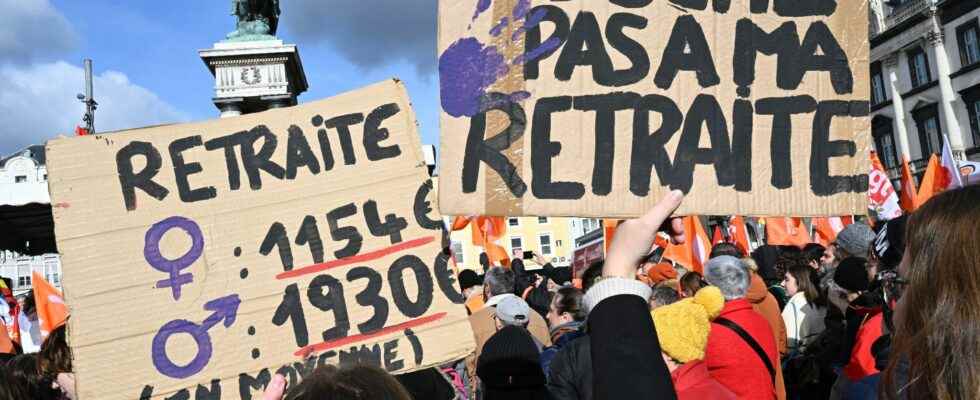Legal or not? For the past few days, the closures of town halls in protest against the pension reform, at the call of the secretary general of the PCF, Fabien Roussel, have been agitating lawyers. Need to maintain essential public services, obligation of neutrality… But beyond the legal dispute, this initiative, which the mayor (PS) of Paris, Anne Hidalgo, notably joined, raises political questions. For historian Jean Garrigues, “the closures testify first of all to the unpopularity of the reform, and therefore to the space given to opposition, political and trade union”.
But they also constitute, for their promoters, an admission of weakness: “Unlike 1995 [et les grèves contre le plan Juppé, NDLR], the PCF and the PS are weak oppositions, which must absolutely occupy the ground. It is a symbolic feat, insofar as these parties will weigh neither in the parliamentary debate, nor, on the social level, in the street.” The historian finally sees in it the sign of a “inflection of the left, started a few years ago, under the impetus of LFI, towards new political practices, which tend to the non-respect of a certain number of democratic laws: a familiarization with the culture of insubordination”.
public service place
“Inflection” or back to basics? With this “solidarity mayors operation”, the communist city councilors reconnect, at least in part, with their history. “On all the major historical strikes (1947, 1968…), the municipalities were invested, underlines the historian Guillaume Roubaud-Quashie, specialist in the sickle party. They were closed and / or mobilized in one way or another. another, for example by distributing meals to the strikers”. Robert Clément, former mayor of Romainville, testifies: “In 1995, we paid the agents for the days of strikes, the town hall was officially open, but there was nobody. On the other hand, I did not know any words of order to close the town hall as they exist today.”
“During the French Revolution, then in 1848, the Hôtel de Ville was the focal point of the revolutionary movements, recalls Arnaud Teyssier, historian and specialist in Gaullism. But today, a town hall is first of all felt as a place of public service. It is not the property of a personality or a political party”.
The biographer of Philippe Séguin (Philippe Seguin – The remorse of the right, Perrin, 2017), who deplores in these initiatives “the forgetting of a certain republican transcendence”, sighs: “This is one more step in the confusion of genres and the progressive loss of the sense of the institutions that our country is experiencing. for thirty years…” “It is the symptom of a form of dislocation of the public spirit, of the feeling of belonging to the national community”, abounds Jean Garrigues. Will this closure benefit mayors, the elected officials in whom the French trust the most? according to opinion polls ?
